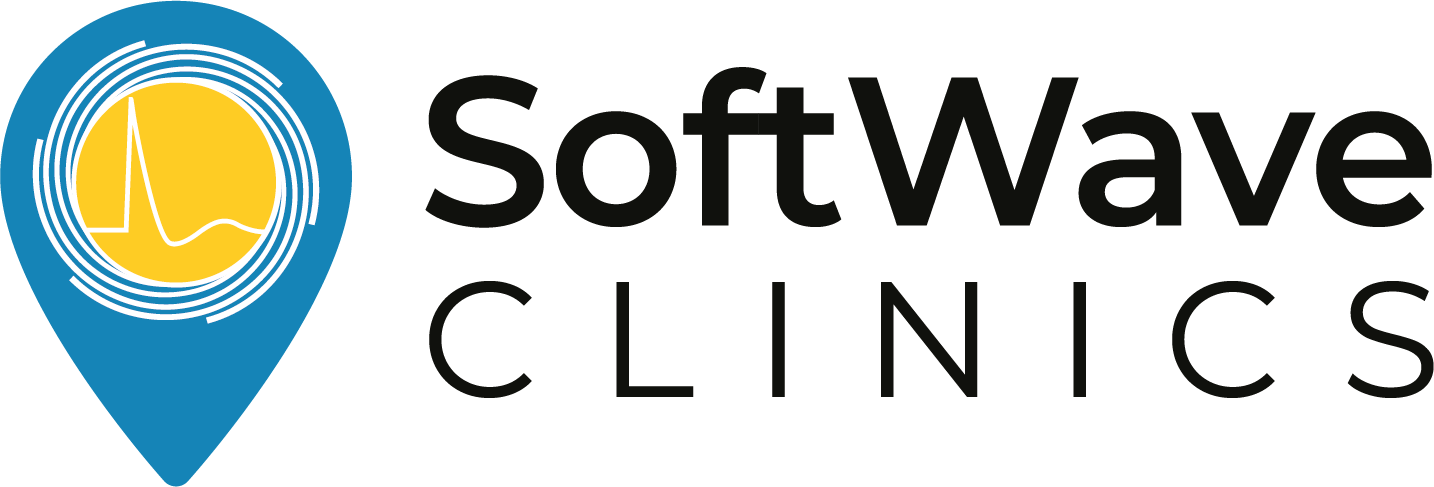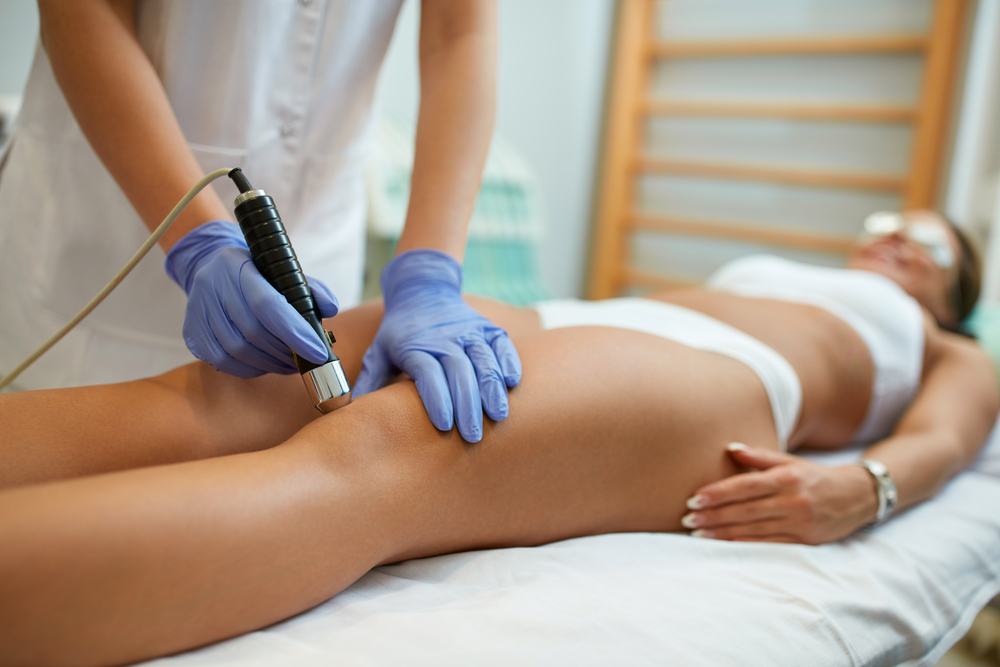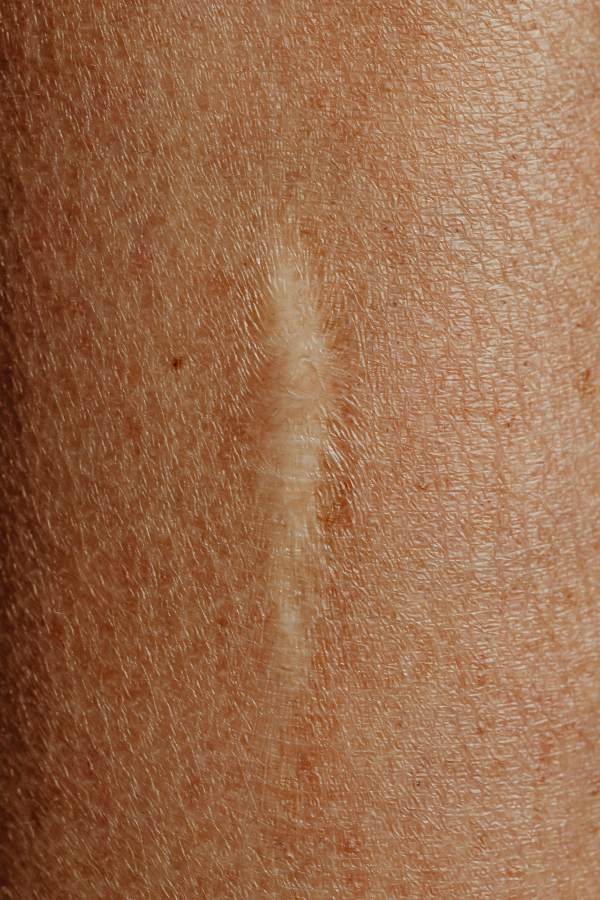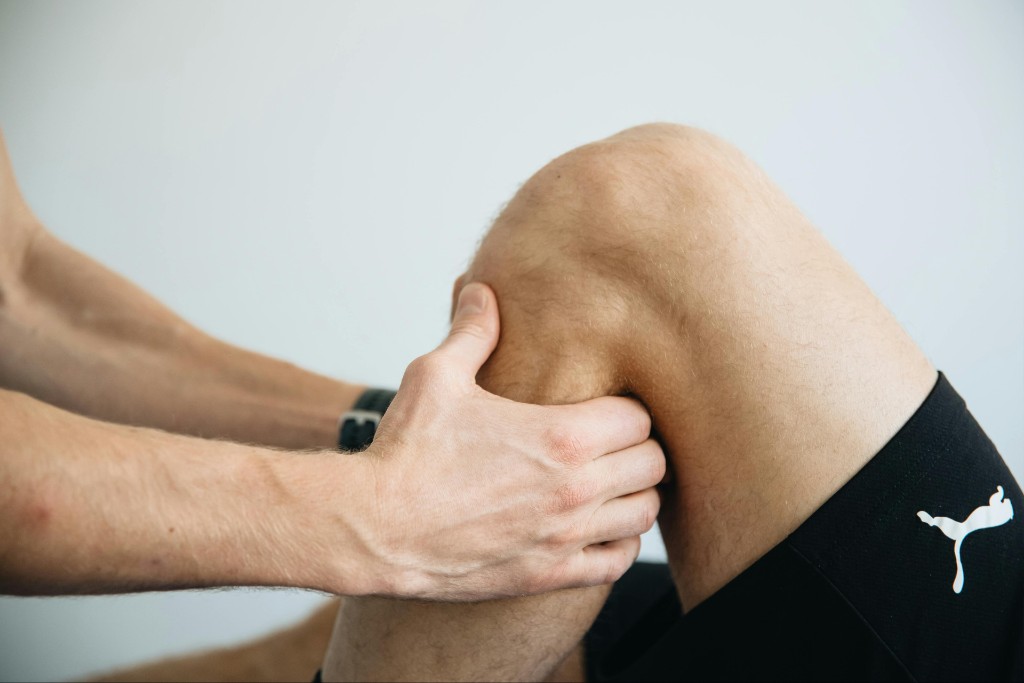In today’s rapidly evolving world of medical treatments, therapies using sound waves have emerged an innovative way to treat various conditions. Two commonly discussed modalities in this arena are Acoustic Wave Therapy and Shockwave Therapy. Both therapies harness the power of sound waves for therapeutic benefits, yet they differ in certain aspects.
The difference between Acoustic Wave and Shockwave Therapy is the intensity and purpose of the sound waves used. While Acoustic Wave Therapy utilizes low-intensity sound waves to treat lighter injuries, Shockwave Therapy typically employs higher-intensity waves to target and treat chronic pain and other medical conditions.
- What is Shockwave Therapy?
- How Does Shockwave Therapy Work?
- How Much Does Shockwave Therapy Cost?
- What is Acoustic Wave Therapy?
- How Does Acoustic Wave Therapy Work?
- How Much Does Acoustic Wave Therapy Cost?
- Acoustic Wave Vs. Shockwave Therapy: Key Differences
- Knowing Which Treatment is Best For You
- The Best Shockwave Therapy for Pain
What is Shockwave Therapy?
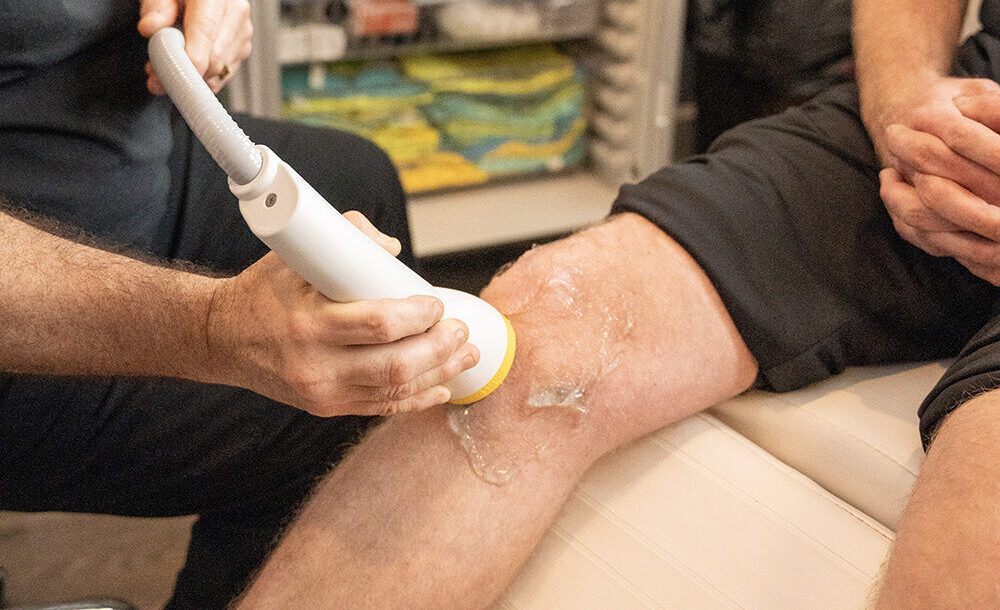
Shockwave Therapy is an innovative and non-invasive treatment modality that utilizes acoustic waves to target and treat various musculoskeletal conditions, promoting accelerated tissue repair and cellular growth. The therapy aids in increasing blood flow to the injured area, stimulating cell regeneration and aiding in faster healing.
In Shockwave therapy, waves are not just any ordinary waves. They are high-energy sound waves that can be generated in several ways. There are different methods of producing shockwaves, each designed to cater to specific therapeutic needs.
Common conditions that Shockwave therapy can treat include:
- Plantar fasciitis
- Tennis elbow
- Calcific shoulder tendinitis
- Achilles tendinopathy
- Shin splints
- Scar tissue treatment
- Stress fractures
- Enhancement of bone healing
- And many others.
How Does Shockwave Therapy Work?
Delving deeper into the science of Shockwave Therapy, the treatment capitalizes on the transmission of high-energy sound waves to the painful spots in the musculoskeletal system. These waves bring about a controlled microtrauma that encourages the body to launch its natural healing processes. As a result, there’s an enhancement in blood circulation, release of growth factors, and activation of cells in the affected area.
Moreover, there are diverse variants of shockwave therapy:
- Radial Shockwave Therapy: Radial shockwaves are produced using a pneumatic mechanism. Unlike true shockwaves that focus energy, radial waves spread their energy, making them suitable for conditions near the skin
- Focused Shockwave Therapy: Focused shockwaves are high-precision waves aimed at specific body areas. Generated externally, they treat deeper issues without surgery.
- broad-focused Shockwave Therapy: broad-focused shockwaves spread energy across a wider tissue area. Typically generated via electrohydraulic methods, they cater to conditions needing a broad therapeutic approach.
- Acoustic Wave Therapy: Uses low-intensity waves for treatments. Gentle and ideal for milder injuries.
How Much Does Shockwave Therapy Cost?
The financial aspect of undergoing Shockwave Therapy can vary significantly based on multiple factors. Depending on factors such as region, the specific healthcare facility, the condition in focus, and the requisite number of sessions, the cost per session can fluctuate between $100 and $500. Some clinics proactively offer incentives, presenting potential patients with discounted rates for their first foray or package deals that encompass multiple sessions.
Considering Shockwave Therapy?
Try SoftWave Therapy for just $69. Non-invasive healing that reaches deeper.
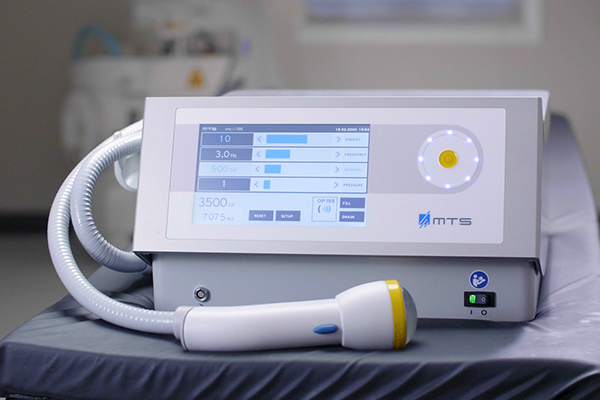
What is Acoustic Wave Therapy?
Acoustic Wave Therapy, often referred to as acoustic sound wave therapy, is also a non-invasive treatment method that utilizes low-intensity shockwaves. Unlike other forms of shockwave treatments, the waves in Acoustic Wave Therapy are not particularly powerful. This makes the therapy suited for addressing light soft tissue injuries and conditions, including:
- Muscle tension
- Lymphatic drainage issues
- Cellulite
- Soft tissue strains
- Chronic inflammation
- Mild joint issues
How Does Acoustic Wave Therapy Work?
Although Acoustic Wave Therapy is a subset of Shockwave therapy, its distinction lies in its use of low-intensity acoustic waves. These waves, when administered, lead to a cascade of beneficial biological reactions in the body. The gentle waves provoke a response that enhances blood flow, promotes cellular repair and regeneration, and stimulates the breakdown of fibrotic tissues. This therapy is suited for people who cannot tolerate more intense treatments
How Much Does Acoustic Wave Therapy Cost?
The financial commitment associated with Acoustic Wave Therapy can vary, just like any medical procedure. On average, a session can range anywhere from $150 to $500. Factors influencing these costs include the geographical region, the healthcare facility’s reputation, the clinician’s expertise, and the specific condition being addressed.
Acoustic Wave Vs Shockwave Therapy: Key Differences
At first glance, Acoustic Wave Therapy and Shockwave Therapy might appear strikingly similar. Both employ wave technologies to target and treat various conditions, but digging a bit deeper, we uncover significant differences.
Therapeutic Processes: Acoustic Wave Therapy relies on low-intensity waves. These gentler waves stimulate cellular repair and enhance blood circulation, particularly effective for milder conditions. In contrast, Shockwave Therapy, including its focused, radial, and broad-focused variants, uses higher-intensity waves. This allows for a more concentrated energy delivery, targeting deeper tissue and more persistent issues.
Applications: Acoustic Wave is often chosen for conditions closer to the skin’s surface or those that don’t require high-intensity interventions – think minor strains or cosmetic applications like improving skin elasticity. Shockwave Therapy, with its intense waves, is more apt for deep-seated musculoskeletal issues, such as chronic tendinitis or certain cardiovascular diseases.
Results: While both treatments are known for their effectiveness, Shockwave Therapy often delivers quicker and more long-lasting results for serious conditions due to its potent waves. Acoustic Wave Therapy may require more sessions for notable results, especially for deep-seated issues.
Knowing Which Treatment is Best For You
In the evolving arena of wave therapies, it’s crucial to pinpoint the treatment that best matches your requirements. As we’ve explored:
- Acoustic Wave Therapy caters mainly to lighter injuries, employing low-intensity waves that are effective for superficial issues.
- Shockwave Therapy, with its diverse types (focused, radial, and broad-focused), offers varying depths and intensities to treat a wide range of conditions, from superficial to deep-seated ailments.
One type of Shockwave Therapy worth mentioning is SoftWave Therapy. Not just an enhancement of traditional shock wave technologies, SoftWave champions tissue healing and regeneration, pivotal in orthopedics, traumatology, wound care, and urology. Its patented device releases low-intensity broad-focused shock waves covering an impressive tissue area of 7cm x 12cm, outshining its counterparts. Focused shockwaves cover 1cm x 12cm, and radial waves span 2cm x 2cm.
The Best Shockwave Therapy for Pain
SoftWave is the only true broad-focused shockwave treatment available. Its unmatched efficacy in initiating natural healing, without causing any damage, makes it a top therapeutic pick. View conditions SoftWave therapy treats.
For those considering a session, SoftWave offers a $69 introductory rate for new patients.
Looking for lasting relief from pain without side effects or invasive procedures? Find a SoftWave provider near you or learn more about SoftWave Therapy’s benefits today.
New Patient Special
Try SoftWave for just $69 at a clinic near you and learn if you’re a candidate for full treatment

